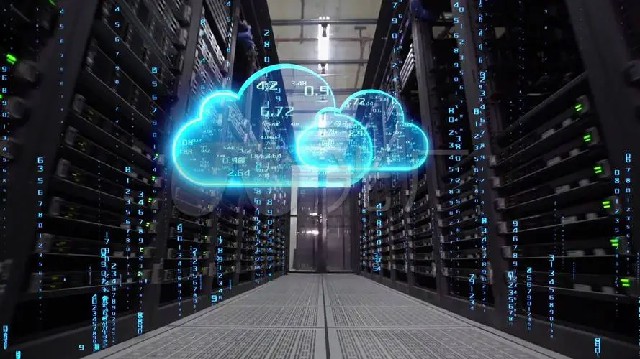Global IT supply chain
International transportation + IT O&M outsourcing + self-owned backbone network
Public cloud and private cloud are the two primary models of cloud computing, each with distinct differences in management, resource utilization, and costs. This article will delve into the differences between public and private clouds and recommend some trustworthy cloud service providers to help users choose the most suitable cloud computing solution.

Key Differences Between Public Cloud and Private Cloud
1. Management and Resource Sharing
Public cloud infrastructure is managed and maintained by third-party service providers and offers services to multiple users via the internet. The resource-sharing nature of the public cloud allows for elastic expansion or reduction of computing resources, with users paying only for what they use. In contrast, private cloud infrastructure is managed and maintained internally by an organization, providing services exclusively to that organization with dedicated resources, thus offering greater security and control.
2. Cost and Resource Elasticity
Public cloud users benefit from a pay-as-you-go model, requiring low initial investment, making it suitable for businesses needing flexible resource expansion. On the other hand, private cloud demands higher initial investment for hardware and maintenance, resulting in higher long-term costs. While public clouds usually possess more resources and advanced technology to swiftly adapt to market changes, private clouds, though limited in resources, can better meet specific security and compliance requirements.
3. Security and Control
Public clouds, due to their scale and resource abundance, offer high levels of security and disaster recovery capabilities. However, private clouds, managed internally by organizations, can more flexibly meet specific needs and compliance requirements, ensuring data privacy and security. Despite the robust security measures of public clouds, private clouds hold a clear advantage for handling sensitive data and adhering to stringent compliance standards.
4. Management and Maintenance
Public cloud infrastructure is managed by professional service providers, freeing users from the concerns of daily operations and allowing them to focus more on business innovation. Private clouds, however, require organizations to invest significant human and technical resources for management and maintenance, necessitating higher technical skills and experience.
Recommended Cloud Service Providers
When choosing a cloud service provider, it’s essential to consider their scale, reputation, security features, service quality, and technical capabilities. Here are some recommended providers for both public and private clouds:
Public Cloud Providers:
Amazon AWS: A global leader in cloud services, offering extensive resources and service coverage.
Microsoft Azure: Provides powerful enterprise-grade cloud services, supporting various operating systems and programming languages.
Google Cloud: Known for its advanced technology and data analytics capabilities, ideal for businesses requiring big data processing and AI services.
Private Cloud Providers:
VMware: Specializes in enterprise-level virtualization and cloud computing solutions, offering flexible private cloud deployment options.
Red Hat: Trusted for its enterprise-level open-source solutions, particularly excelling in compliance and data security.
Ogcloud Cloud Services:
Ogcloud: Offers flexible and reliable cloud computing solutions, catering to diverse business needs. Ogcloud prioritizes service quality and customer experience, making it an ideal choice for enterprise cloud services.
The choice between public and private clouds depends on the specific needs and environment of an organization. Public clouds are suitable for scenarios requiring flexibility, high performance, and low initial costs, while private clouds are ideal for businesses with stringent data security and compliance requirements. When selecting a cloud service provider, a comprehensive evaluation of various factors is necessary to ensure the choice of the cloud computing model and provider that best fits the business needs.
For more information on enterprise networking and cloud computing, feel free to consult with Ogcloud Cloud Service Providers.

International transportation + IT O&M outsourcing + self-owned backbone network

Cellular chips + overseas GPS + global acceleration network

Overseas server room nodes + dedicated lines + global acceleration network

Global acceleration network + self-developed patented technology + easy linking

Global Acceleration Network + Global Multi-Node + Cloud Network Integration


